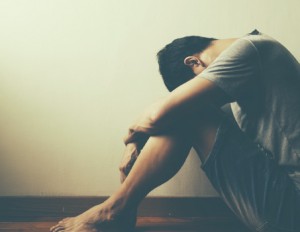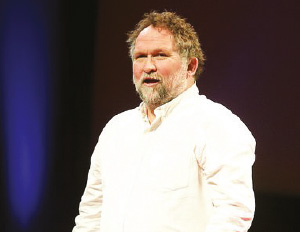
Talking about Mental Health
Monday 20th February 2017Good mental health is important to all of us in order to be able to cope with the pressures of everyday life. It is also about being able to enjoy life to the full and to have good self-esteem and respect for yourself and others.
Young people in the BB come from a range of family backgrounds and have different needs and abilities. As leaders we are asked to provide good support and guidance for each individual within our Companies. Mental Health conferences were held during 2016 in all BB regionsand within this article we now share some learning points provided by the key speakers from the Charlie Waller Memorial Trust and YoungMinds UK.
Facts from Young Minds UK
- Roughly 725,000 young people in the UK suffer from eating disorders. 86% of these will have shown symptoms by the age of 19.
- One in ten young people deliberately harm themselves regularly and 15,000 of them are hospitalised each year because of this.
- Nearly 80,000 children and young people suffer from severe depression.
- Half of all lifetime cases of mental illness begin by the age of 14.
- 45% of children in care have a mental health disorder – these are some of the most vulnerable people in our society.
- Nearly 300,000 young people in Britain have an anxiety disorder.
YoungMinds is the UK’s leading charity committed to improving the emotional wellbeing and mental health of children and young people.
Most common problems with mental health
- Anxiety and depression are by far the most common.
- Eating disorders and self-harm are also on the increase.
- Stressful life events e.g. bereavement, divorce, serious illness, exams, bullying etc are also common, and we can help build resilience in young people to withstand these.
Why should we bother?
It is well evidenced that early intervention in emotional difficulties improves outcomes for children, families and wider society. Early intervention increases learning and educational attainment, improves attendance and behaviour at school also better physical and improved long term mental health.
Charlie Waller Memorial Trust
At each our Regional conferences held in 2016 our key speaker was Dick Moore from the Charlie Waller Memorial Trust. Dick has been a housemaster, English teacher, rugby coach and a headteacher, and he has a passionate interest in the emotional wellbeing of young people. Circumstances led Dick to develop a passionate interest in adolescent development and emotional wellbeing.
Leaders that attended the Mental Health Conferences said:
Dick Moore was so inspirational, the day was thought provoking and a great networking event with plenty of interaction.
Mental Health being discussed so openly was such a positive thing for BB to tackle.
Watch Dick Moore’s talk at vimeo.com/theboysbrigade/mentalhealth-dickmoore
Find out more about the Charlie Waller Memorial Trust and access resources and advice at cwmt.org.uk
The aims of the ‘Charlie Waller Memorial Trust’ are to:
- Equip young people to look after their mental wellbeing
- Help people to recognise the signs of depression in themselves and others so they know when to seek help
- Ensure expert and evidence based help is available when people need it
How do we know the children and young people we look after are okay?
Anxious, difficulty communicating
- Obsessive
- Emotional
- Risk-taking
- Obsessive
- Unhappy, low self-esteem
- Withdrawn
- Unsociable
- Falling out with friends
- Wetting/soiling
- Frightened
- Confused
- Judgemental about themselves… more than usual
… or a combination of these and other symptoms.
Depression
It is estimated that 1 per cent of children and 3 per cent of adolescents suffer from depression in any one year.
Symptoms include sadness, irritability and loss of interest in activities. Associated features include changes in appetite, sleep disturbance and tiredness, difficulty concentrating, feelings of guilt, worthlessness and suicidal thoughts.
If you notice these changes in a young person then it is important to be able to offer appropriate support.
A trusting relationship between a BB leader and a young person can be an important part of their recovery.
What can we do to help a young person ?
- Reassure the young person and encourage them to talk
- Listen non-judgementally
- Assess then act
- Avoid catastrophizing
- Discourage over-thinking
- Random acts of kindness can be healing – for the giver and the receiver
- Help them to manage their emotions
- Encourage positive behaviour
- If required get further help for the young person through the appropriate channels in place through BB or Church.
Key skills for education & life are all encouraged within the BB framework & programmes. Problem solving, relationship skills, self & social awareness, decision making all help to develop good mental health. Physical activity also encourages better sleep patterns, a sense of achievement, quality of life, a means to meet people, increases self-esteem & mood & reduces stress.
We should encourage young people to:
- Maintain a daily routine
- Eat healthy meals
- Get good amounts of rest & sleep
- Exercise regularly & get fresh air
- Laugh, smile
- Maintain friendships & hobbies, stay socially active, do things they enjoy
- Avoid alcohol, tobacco, drugs
- Be with friends who help them to cope in a positive way
- Talk to caring adults
- Learn relaxation techniques (deep breathing, muscle relaxation, meditation)
- State feelings in a clear way
- Decrease negative talk
You can get more information, resources and support from these websites:
NHS choices – nhs.uk/livewell/mentalhealth
Childline – childline.org.uk
YoungMinds UK – youngminds.org.uk
Mind – mind.org.uk
The participants attending the conference were asked to write down 5 things that they did to make their minds feel good, here a few examples:
Phone my mum she always makes me feel better
Go outside or walk with friends
Smile and be happy with what I have
Spend time with my family
Play my favourite music
Try a new activity or learn a new skill
If you have a concern…
If you are concerned about a young person’s safety or you feel they are at risk, then you should follow normal safeguarding procedures and share your concerns. You can also obtain support from your Regional or BB Headquarters.
Question – Consider the things you do to support your own emotional wellbeing?






